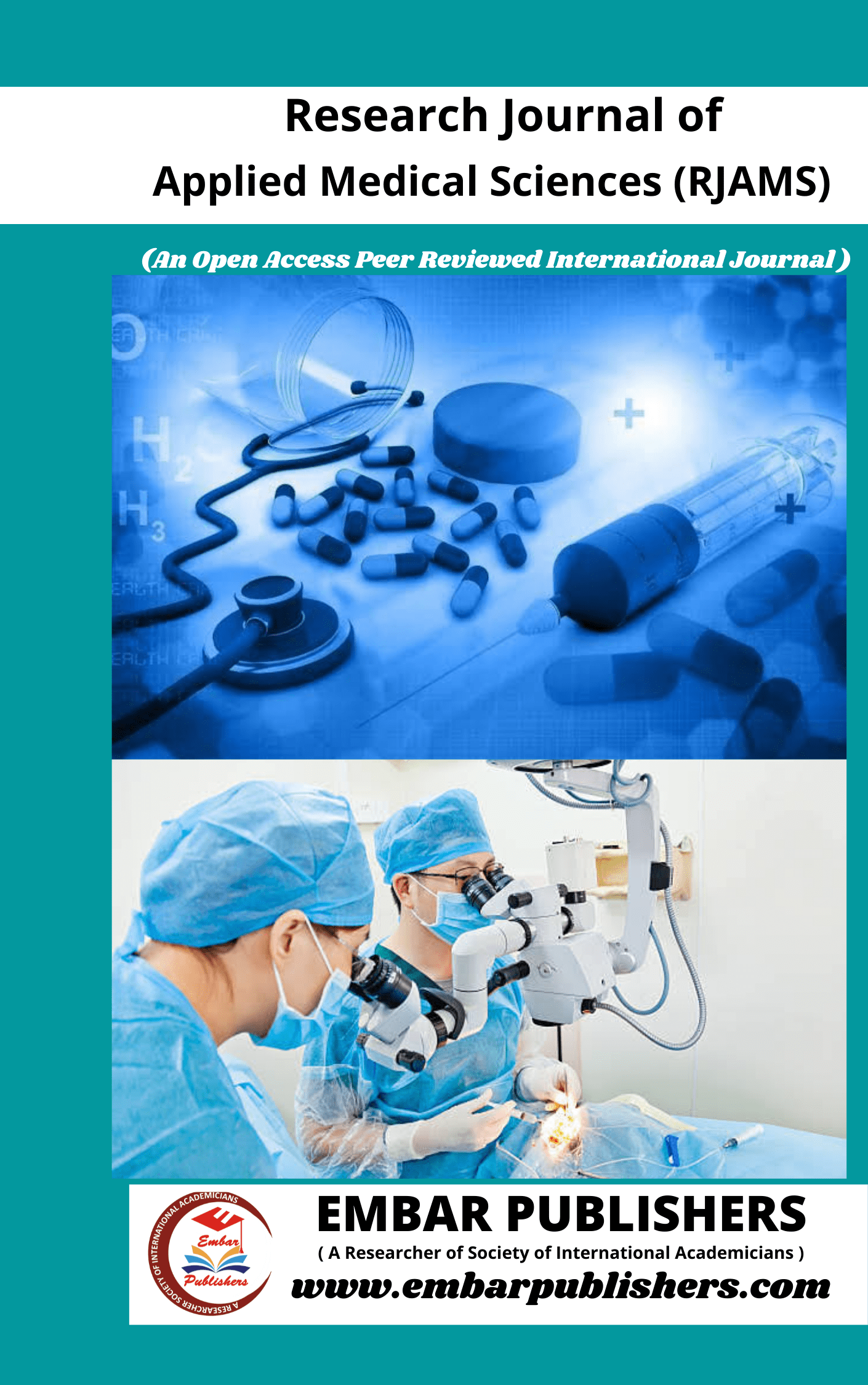
PHYTOCHEMICAL AND ANTIMICROBIAL EVALUATION OF AZADIRACHTA INDICA AGAINST MULTIDRUG-RESISTANT MICROORGANISMS
Punit Rai, Vivek Gupta, Shivam Raikwar, Gyan Singh
Punit Rai
DOI: doi.org/10.58924/rjams.v4.iss2.p3
Published Date: 01-Jan, 1970
Keywords: Azadirachta indica, Multidrug-resistant microorganisms, Phytochemicals, Antimicrobial activity, Synergistic effects
Abstract:
Background – The global rise of multidrug-resistant (MDR) microorganisms poses a significant challenge to public health, rendering many conventional antibiotics ineffective. Azadirachta indica (neem), widely known for its medicinal properties, has gained attention as a potential natural alternative due to its phytochemical richness and broad-spectrum antimicrobial activity. This review aims to explore the phytochemical composition, antimicrobial efficacy, and potential applications of A. indica, particularly in combating MDR pathogens. Methods Relevant studies were reviewed to summarize the phytochemical profile, antimicrobial activity, and mechanisms of action of A. indica. Data on extraction techniques, compound identification (e.g., TLC, HPLC, GC-MS), and antimicrobial testing (e.g., disc diffusion, MIC) were analysed. Additionally, toxicological studies and the development of neem-based formulations were assessed to evaluate their clinical and industrial viability. Results A. indica contains diverse bioactive compounds, including azadirachtin, nimbin, and quercetin, which exhibit potent antimicrobial, anti-inflammatory, and antioxidant properties. In vitro studies demonstrate its efficacy against MDR strains like MRSA, E. coli, and K. pneumoniae, primarily through mechanisms such as cell membrane disruption and oxidative stress induction. Neem-based formulations, such as antimicrobial coatings and topical preparations, offer promising alternatives to synthetic antibiotics. Furthermore, synergistic effects have been observed when neem is used in combination with conventional antibiotics. Conclusion A. indica demonstrates significant potential as a natural solution to address the growing issue of antimicrobial resistance. While its therapeutic efficacy and safety are well-supported by preliminary studies, further clinical research and standardization efforts are essential to unlock its full potential in healthcare and pharmaceutical industries.
References:

Journal: Research Journal of Applied Medical Sciences
ISSN(Online): 2945-4131
Publisher: Embar Publishers
Frequency: Bi-Monthly
Chief Editor: Dr H. Gayathri
Language: English
ISSN(Online): 2945-4131
Publisher: Embar Publishers
Frequency: Bi-Monthly
Chief Editor: Dr H. Gayathri
Language: English
